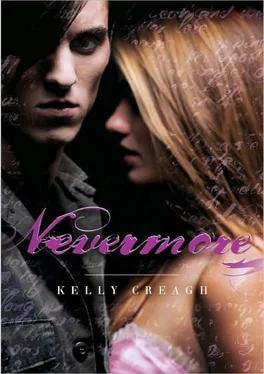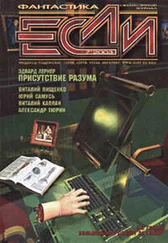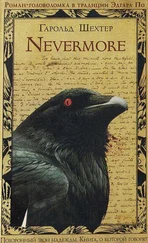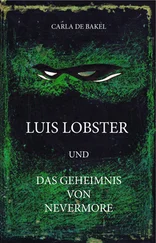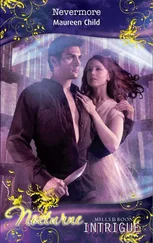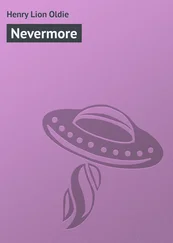Isobel released her grip on his cloak and, curious, let her fingers spider-crawl their way to the glinting chain that had caught her eye. She pulled at it, and a small ticking pocket watch came free in her hand. She turned it over, her eyes following the light as it chased across the polished surface.
She opened the watch. It had a simple white face encircled by roman numerals and three black hands. There was a name engraved in cursive on the inside of the little circular cover. Isobel traced her thumb over the name. “Augustus,” she read aloud. Her voice came out small and hollow-sounding, as though it had been a long time since she’d last used it. “Is that your real name?” she asked. “Augustus?”
“I dare think,” Reynolds said as, over his shoulder, the pale slice of moon became visible between the knit of branches, “that not half so much trouble would find its way to you if you would only learn to leave things that are not yours alone.”
“Okay, Augustus.”
He sighed. “Augustus is dead, long since.”
“Oh . . .” She closed the watch and slipped it back into his pocket. “And you’re not?”
“Not quite.”
“Am—am I dead?”
“You, strange puzzle of a girl, are very lucky.”
“Where—where are we?”
“We are nearly through the park behind your home,” he said.
“And—and Varen?”
“He is . . . home now, as well.”
Home, she thought with a sudden pang of yearning. She pressed her lips together and felt her face pinch with sudden emotion. She fought the sting that threatened her eyes and instead forced herself to laugh. The sound that came out of her was more like a choking bark than anything else, and it rocked her body with a tight tremor. How? How had they managed to survive when their demise had been so certain?
Isobel shut her eyes again and released a long breath. Her sore muscles relaxed. Safe. He was safe.
“I had a home once. A family, too,” said Reynolds, interrupting her thoughts. Isobel looked up at him, surprised by this uncharacteristic sharing of information. “Never one of my own, mind you. I never married,” he said, as though reading the question in her silence.
“Like you, I had a mother and father,” he said, “and a grandfather, with whom I was particularly close. It has been so long, and yet I remember them just as they were.”
The light around them grew brighter, and Isobel became aware of the heads of streetlamps, their glow warm and promising, and she knew that they must have just entered the rear of her neighborhood.
“You must miss them,” she heard herself say.
He sighed. “Sometimes I fear I shall never forget them.”
“Why would you want to forget them?”
At first he didn’t answer. The moon drifted out of sight again behind the brim of his hat, and the glow of the stars lessened as the streetlights and houselights around them grew brighter. Isobel turned her head enough to see the approaching outline of her house, the dark windows and drawn shades. Everyone inside must be asleep, she thought.
Candy wrappers littered the street along with scattered leaves. A white ghost’s mask lay far off in the grass, like the broken face of a Noc, left behind and forgotten. Reynolds’s footsteps made no sound on the gravel walkway that led to her back porch. He carried her to the door, but instead of setting her to her feet, he laid her gently on the cushion of her mother’s long wicker bench. As he stepped back from her, Isobel sat up, worried that he might leave her without another word.
He paused, though, and crouched down next to her. “Isobel,” he began, “it is naught but pain and regret when we think of the things and people we will never have, the opportunities we may never get. Would you not agree?”
She frowned, not sure where the question had come from and even more unsure of how to answer it.
“But to pine for those we have had and loved and once held but will never clasp again,” he continued, “it is a torture of an unbearable degree. It is the worst pain possible. Enough to drive you away from yourself . . . as it did with Edgar.”
“Why are you telling me this?” she asked. “Am I dead after all?”
He chuckled, and Isobel realized that it was the first time she’d ever heard his laugh. It was a soft and husky sound, like the opening of a rusted gate. Slowly he rose, sending her another waft of fermented roses. He drifted away to the edge of the porch, where he stood with his back to her. He raised an arm and curled one gloved hand around a wooden support beam. A breeze blew past, rustling his cloak.
“Edgar.” He looked down, speaking the name as though it were one he did not often allow himself to say. “You are right that I knew him well. Despite our list of differences, we were two sides of a single coin. Different, yet inherently one and the same. He was my friend.”
Isobel listened. It was strange to hear Reynolds talk this much. And he was always so vague.
Usually you could turn around everything he said and it would make just as much sense.
“What really happened to him?” she asked.
“He died,” Reynolds said. “He perished partly by his own means and partly by the means of others.
It is best left at that.”
“You mean Lilith killed him?”
“She was . . . responsible,” he said.
“I don’t understand,” Isobel said breathlessly. “I burned the book. Why am I still here? Why didn’t I die?” It was the question she had been waiting to ask, one that now fought its way through a crowd of others.
“Ah,” said Reynolds, “that is something I do not fully comprehend myself, though I suspect that it was somehow your friend’s doing.”
“Varen? But how could he—?”
He turned toward her. “Allow me to attempt to explain with an example I do understand. The Nocs.
They are part of his imagination, part of Varen’s story, and so, part of him. If he would not hurt you, then it only makes sense that they would not be able to do so either. They are the deepest parts of his subconscious. Shrapnel of his inner self. As you might have learned, they have the same desires and conflicts as their maker. As separate pieces, freed from the soul and from the confines of a human conscious, however, they develop minds of their own. And, as demons created in the dreamworld, they are compelled by law to answer to its queen. That is why they attempted to harm you but in the end could not.”
“That doesn’t explain why the fire I made didn’t burn me.”
“You created the fire in a dreamworld that is subject to the rules of its queen, yet influenced by the imagination and desires set in motion by an outside force—your friend. Therefore, the same power that protects you from the Nocs perhaps also protected you from the fire. Furthermore, when you destroyed the link—the book, I should say—you also destroyed the page that held your name. Your sole connection to the dreamworld was broken, and you existed here fully, in your world, once more. And finally, because the fire was created by you in the dreamworld and was, in essence, a dream itself, it also ceased to exist the moment the link was severed, the moment the two worlds parted.”
“She asked me to join with her,” Isobel blurted.
“Then,” he said, sounding unsurprised, “I suspect that she knew of the power that protected you.
Invulnerability in a physical form caught between two realms? There is no greater power she could wish for.”
“What about you?” she prompted. “Did you know about the protection?” She asked this, already knowing the answer. For a long moment, the question hung between them like a dead thing. A knot of discomfort deep in her stomach tightened to the point that she felt sick, and she wished that she hadn’t spoken the question aloud. After all, he wouldn’t have had to guess at why she was still alive if he had known all along that she’d been under Varen’s protection.
Читать дальше
